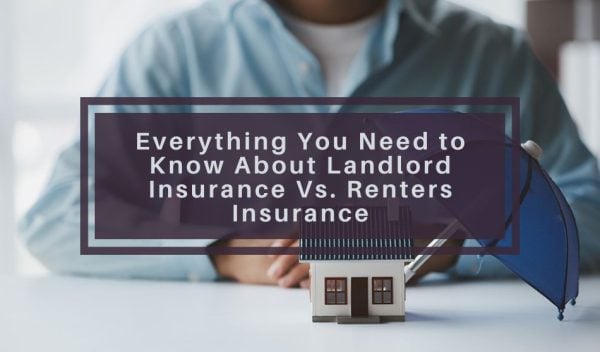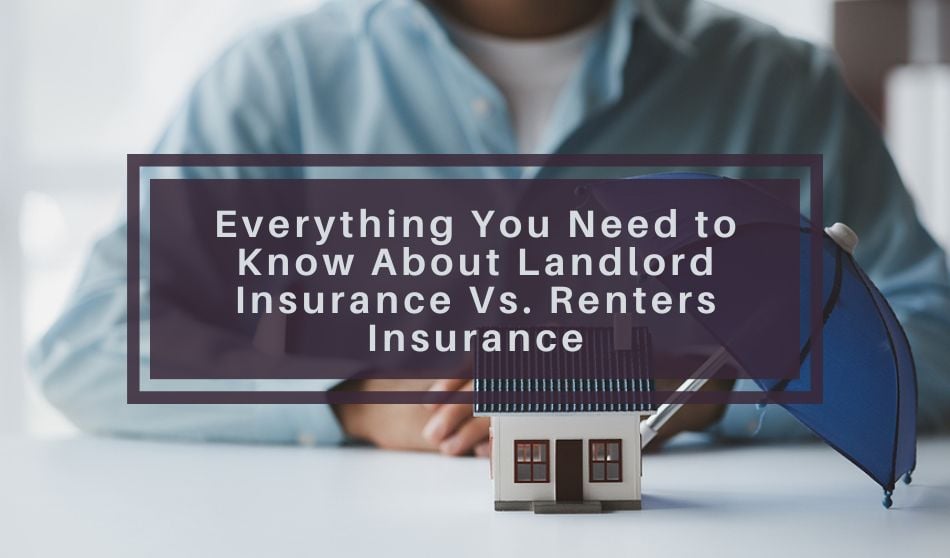
Every landlord and property manager wants to protect their assets. Understanding the differences between renters insurance, landlords insurance, and even homeowners insurance can be essential when determining what will ensure your property is safe and protected from accidental damages, natural disasters, as well as liability issues.
What is the difference between landlord insurance vs. homeowners insurance?
Landlord’s insurance is critical if you have a rental property. Some landlords incorrectly assume they can rely on their standard homeowners insurance to cover their rental units. if this is your first investment property, you may not realize that a landlord policy is what is required to protect your investment.
Learn more: Do You Have the Right Insurance for Your Rental Property? | Landlord Insurance vs. Homeowners Insurance
Landlord Insurance Benefits:
While every insurance policy is different based on your individual coverage, there are some standards within landlord insurance. Many landlord insurance policies will offer dwelling coverage, liability coverage, and personal property coverage. These three areas are vital.
- Dwelling Coverage: this will cover structural damage to the property and more expensive dwelling coverage policies will also include damage to appliances or on-property equipment.
- Liability Coverage: as it sounds, this offers coverage for expenses associated with any injuries on the property for which you are found legally responsible.
- Personal Property Coverage: especially helpful for owners operating furnished rentals or short-term rentals; personal property coverage offers protection for personal items on the property that you own. This could include items such as light fixtures or curtains that are in the dwelling and do not belong to your tenants.
There are also additional coverage options available for landlords and investment property owners, including acts of nature coverage, flood coverage, and legal fee coverage. Since traditional dwelling coverage has its limitations, you will greatly appreciate having additional property protection with insurance that will cover a natural disaster. Legal fee coverage can also offer great peace of mind and will offer coverage in the event a tenant sues you or you need legal representation in court for any rent-related reasons.
What is the difference between landlord insurance vs. renters insurance?
The difference between landlord insurance and renters insurance is simple. Landlord insurance is paid for by and primarily benefits the landlord, while renters insurance is paid for by the renter and primarily benefits the renter.
Landlord insurance and renters insurance often get confused; renters and landlords alike can find themselves confused about insurance coverage. A surprising amount of renters do not have renters insurance, and many don’t even know the benefits. If you have any questions related to renters insurance or landlords insurance now is the time to learn.
Renters insurance does not cover the property itself. Landlords cannot rely on a renters insurance policy to cover the property in the event of a problem. However, renters insurance can be a huge benefit to tenants and landlords alike.
Renters Insurance Benefits:
Unlike landlord insurance, renters insurance is designed to benefit and protect the tenant or the renter of the property. Like with any insurance policy, your coverage will vary based on your particular policy. Generally, renters insurance protects the tenant’s items within the home.
While many tenants believe that their landlord’s insurance policy will cover their personal items, this is largely untrue. If a natural disaster, a burst pipe, or another incident were to occur on the property–even if the tenant were not at fault–the landlord’s insurance policy would not protect their personal items. Renters insurance fills this gap for a minimal fee.
Learn more: 5 Top Things Renters Should Understand About Renters Insurance
Additionally, depending on your coverage, you renters can have policies that will offer coverage for issues relating to liability. This means if a renter has a dog that bites a guest and causes medical fees or if a negligent renter forgets to turn off the faucet and floods the upstairs of their apartment complex, these issues will be covered. For this reason, renters insurance can benefit both the renter and landlord, since most renters cannot afford to pay damages due to negligence without having a good renters insurance policy.
Additional Insurance Options at a Rental Property:
Another increasingly common type of insurance is security deposit insurance. Unlike landlord insurance or renters insurance, security deposit insurance is not crucial to protect your property, but can offer certain benefits. Unlike traditional insurance, the foundation of security deposit insurance is a surety bond. The bond is established when a contract (policy) is created, and the renter begins paying the monthly premium. This option can help renters who struggle with the financial burden of moving and saving for a new security deposit in the midst of moving to a new rental property. Security deposit insurance has pros and cons, but it can be a helpful option to some renters and ensures that the funds are available to landlords should property damage occur.
Learn more: What is Security Deposit Insurance | A Landlord and Renter Perspective
What kinds of insurance should you have for your investment property?
Investors and landlords should absolutely ensure that their property is fully covered in the event of a natural disaster or an unexpected emergency. Talking to an insurance provider is key to finding the best policies for your and your tenants’ needs. Savvy landlords will require their tenants to have a renter’s insurance policy. Most states will allow this (Oklahoma is an exception). While you cannot require a specific policy, in most areas, you can require that your tenants pay for some form of coverage. This can be an excellent way to ensure that they are protected should an emergency, theft, or unexpected property damage occur.
As with any policy you would add to your lease agreement, be sure to have it checked with a trusted and licensed attorney specializing in landlord-tenant law in your area to ensure that your requirements are legal and cater to your area’s laws and regulations. This is the best way to keep your assets, and your tenants’ assets protected no matter what unexpected events may occur.







Always good to read about insurance, great tips thanks
Glad you found it helpful, Chester!
Great article, very interested in the insurance piece., thank you for the updates.